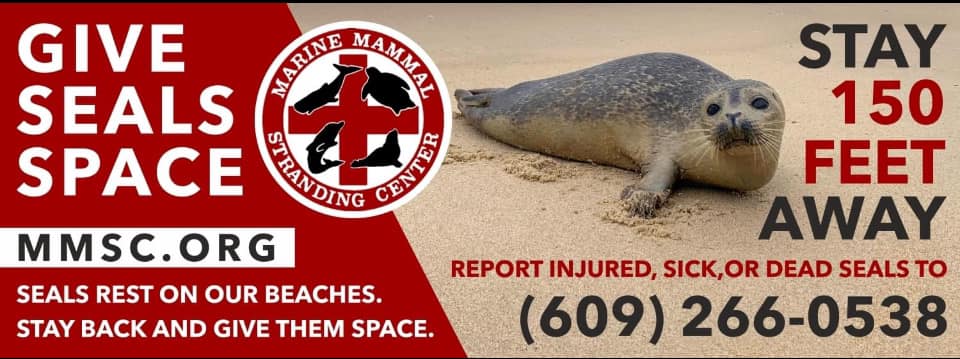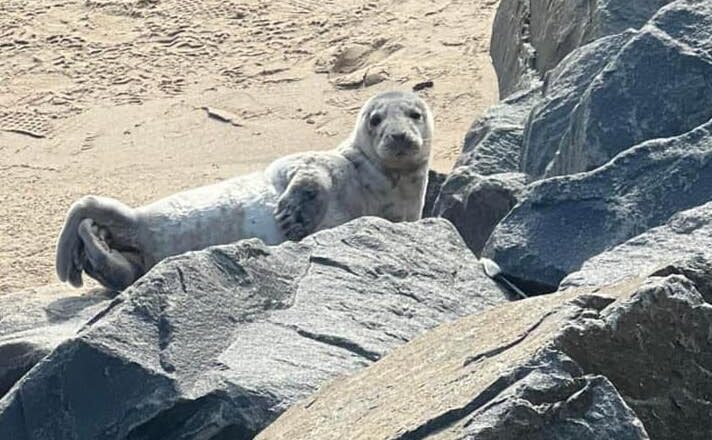A seal visited Perth Amboy this week on the beach by the rocks near High St fishing pier. It was the first time many people had seen a seal on the beach. Seals had been seen on docks before at the Raritan Yacht Club.
What appeared to be a baby seal happily flopped around on the sand and was very cute. Local activist Lorraine McCartney confirmed online that it was a baby seal and that she had visited the seal with the Marine Mammal Stranding Center and they had observed on Monday that the seal was doing well and resting. Animal control in Perth Amboy was also called and the police.
Some residents speculated about why the baby seal was alone and were worried about its safety, perhaps that its mother had been killed by whales and it was alone now.
The seal went back into the water Tuesday after some residents clapped at it and it went into the water.
In response to the clapping at the seal and a video showing someone with their hands near the seal, residents and activists educated each other online how to protect the seals by not approaching them. One wrote “stay about 150 feet away. They beach themselves so they can rest. If you get to close they get scared and go back out to sea before they have a chance to recover.”
Another wrote “Seals haul out to beaches or rocks to rest. If they go back in water too soon, they can drown! Leave them alone! Don’t scare them by getting too close!”
Others wrote “Please distant yourself…they bite” and “Leave the sea puppy alone.”
Activist Lorraine McCartney also posted online “NEVER APPROACH A SEAL ON THE BEACH. They are federally protected! Up to a $10,000 fine! Stay back 150 ft.”
Many people posted information about giving seals space and where to report an injured seal to the Marine Mammal Stranding Center at 609-266-0538.

Raritan Riverkeeper Bill Schultz posted online that he was concerned about videos that he had seen of people trying to touch or poke the seal. He said NOAA (National Ocean and Atmospheric Administration) Law Enforcement can prosecute harassment of federally protected species.
